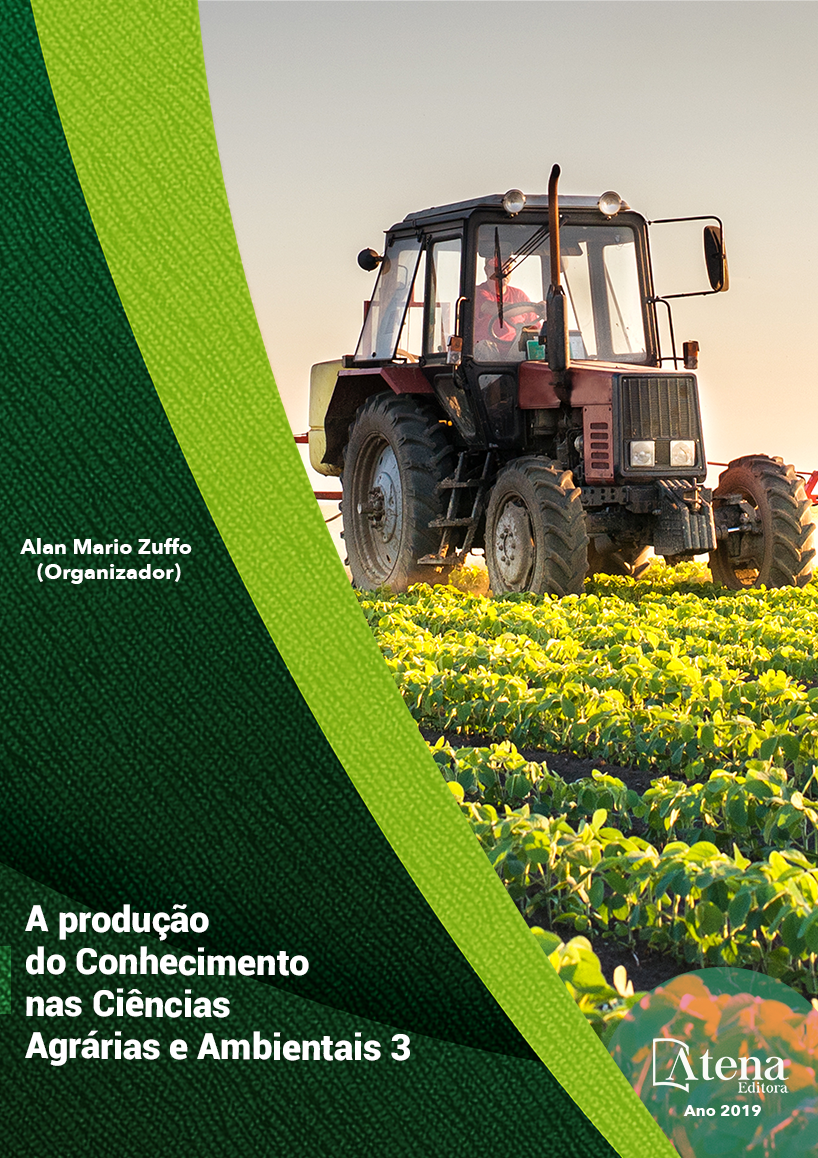
FERTIRRIGAÇÃO DE BERTALHA (Basella alba L.) CULTIVADA SOB MANEJO ORGÂNICO UTILIZANDO ÁGUA RESIDUÁRIA DE BOVINOCULTURA DE LEITE
Hortaliças não convencionais são
hortaliças que em algum momento foram
largamente consumidas pela população, e
por mudanças no comportamento alimentar,
passaram a ter expressões econômica e social
reduzidas. É de fundamental importância
também a utilização da fertirrigação como
meio de disposição de águas residuárias de
bovinocultura de leite na produção de culturas
agrícolas, aumentando assim a produtividade
decorrente do aporte de nutrientes encontrados
nessas águas e além de melhorar as condições
edáficas do solo devido à matéria orgânica
adicionada. Em face disto, o presente trabalho
teve como objetivo avaliar os efeitos da
fertirrigação com água residuária gerada em
um sistema orgânico de bovinocultura de leite
(ARB) na produção da bertalha sob manejo
orgânico. O experimento foi conduzido no
Sistema Integrado de Produção Agroecológica
em Seropédica- RJ. Assim, foi conduzido um
experimento no delineamento inteiramente
casualizado (DIC) com quatro tratamentos e
quatro repetições. Os tratamentos consistiram
de quatro doses de nitrogênio por meio da
fertirrigação (T1= 50% de N; T2= 100% de N; T3=
200% de N e T4= 300% de N). Os parâmetros
de produção avaliados foram: comprimento da
haste principal, diâmetro do colo e número de
folhas. De acordo com os resultados, verificouse
que não houve efeito significativo das doses
ARB em relação a comprimento e diâmetro,
enquanto o número de folhas apresentou
diferença estatística. Assim, o uso da ARB para
fertirrigação da bertalha apresentou-se como
alternativa promissora, além de contribuir para
melhoria dos processos de gestão dos resíduos
gerados pela bovinocultura leiteira e redução
de custos dessa atividade.
FERTIRRIGAÇÃO DE BERTALHA (Basella alba L.) CULTIVADA SOB MANEJO ORGÂNICO UTILIZANDO ÁGUA RESIDUÁRIA DE BOVINOCULTURA DE LEITE
-
DOI: 10.22533/at.ed.86919260418
-
Palavras-chave: disposição final de água residuária, agricultura orgânica e reuso de água.
-
Keywords: final disposal of wastewater, organic agriculture and reuse water.
-
Abstract:
Unconventional vegetables are vegetables that at one time were widely
consumed by population, and due to changes in food behavior, they had reduced
economic and social expressions. Also of great importance is the use of fertigation
as a means to dispose of wastewater from dairy cattle in the production of agricultural
crops, thus increasing the productivity resulting from the nutrients found in these
waters and besides improving soil conditions due to the added organic matter. In view
of this, the present study aimed to evaluate the effects of fertigation with wastewater
generated in an organic system of dairy cattle (ARB) in the production of bertalha under
organic management. The experiment was conducted in the Integrated Agroecological
Production System in Seropédica - RJ. Thus, an experiment was conducted in a
completely randomized design (CRD) with four treatments and four repetitions. The
treatments consisted of four doses of nitrogen via fertigation (T1 = 50% of N; T2 = 100%
of N, T3 = 200% of N and T4 = 300% of N). The parameters of production evaluated
were: length of main stem, stem diameter and number of leaves. According to the
results, it was found that there was no significant effect of doses of ARB regarding length
and diameter, while number of leaves presented statistical difference. Thus, the use of
ARB for fertigation of the bertalha was presented as a promising alternative, besides
contributing to the improvement of the waste management processes generated by
dairy cattle and reducing the costs of this activity.
-
Número de páginas: 15
- Tadeu Augusto van Tol de Castro
- Rafael Gomes da Mota Gonçalves
- Erinaldo Gomes Pereira
- Leonardo Duarte Batista da Silva
- Rafaela Silva Correa


